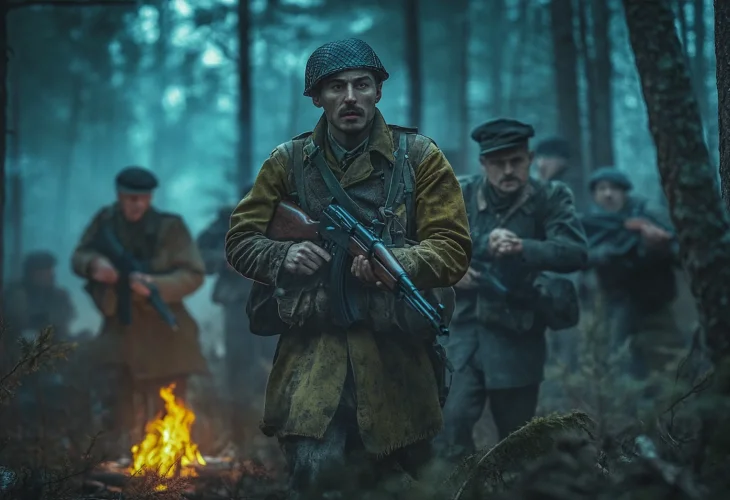History and Archaeology
The Bielski Brothers: Courage and Rescue in the Holocaust
Unlike other partisans, the Bielski brothers made saving Jewish lives their mission, building a hidden forest community that gave refuge and hope

When the Germans occupied Eastern Europe, rebels and resistance fighters fled into the thick forests, using them as bases to attack the Nazis. These fighters were known as “partisans.” But for Jews, the situation was complicated. Even though partisans hated the Germans, they often despised Jews as well. For Jews on the run, allies were rare.
Those who escaped from the ghettos and sought to join partisan groups often faced tragic outcomes. After weeks of wandering in the forests, many were killed by those same groups who should have been allies. The few who were accepted were usually treated as second-class fighters and sent on suicidal missions. Partisan groups were primarily military units, focused on combat against the enemy, not on saving Jewish lives and rarely allowed in people who could not fight.
Some Jews managed to flee the ghettos through bribery or other means, but life outside was no safer. With the partisans hunted by Germans as well, survival was uncertain. For many, returning to the ghettos, even with their cruelty, seemed like the only structured option.
Two years into the war, in December 1941, David and Beila Bielski were murdered in the Novogrudok ghetto (in Yiddish: Navahrudak), home to the famous “Saba of Novahrudak” yeshiva. The Nazis had no idea what they set in motion by killing this elderly Jewish couple. Their four sons—Tuvia, Zus (Alexander Zisel), Asael, and Aron—were strong, clever, and determined. They escaped into the forest and formed a partisan group that would later be known as the “Bielski Brigade.” Unlike other groups, the Bielski partisans were fully Jewish and had one mission above all: to save as many Jewish lives as possible. Tuvia Bielski famously declared, “It is more noble to save one old Jewish woman than to kill ten German soldiers.”
The Bielskis settled in the enormous Naliboki forest along the Nieman River in Belarus, one of Eastern Europe’s largest forests, covering nearly 1,900 square kilometers. The forest’s lack of roads and open land for planes made German raids difficult. When German troops did enter on foot, they were often struck down by hidden snipers.
As word spread, more and more Jews found their way to the Bielskis. Their camp grew to house 1,263 people, 70% of whom were women, children, and the elderlyת people who could not fight but who found refuge there. Despite being at a military disadvantage, the mission of the Bielskis remained clear: rescue Jews. They built what was essentially a small town hidden in the forest. It had shelters, a kitchen, a flour mill, a bakery, a bathhouse, a medical clinic, and even a quarantine area for illnesses like typhus. They raised cows for milk and, remarkably, established a synagogue, a school, and a small court to maintain order.
The Bielskis also protected their people with fierce determination. Local villagers who betrayed Jews were punished, sometimes with deadly consequences so that others would think twice before turning Jews over to the Nazis. The group also carried out daring raids. In one famous action, they stormed a German police station, overpowered the guards, and seized an entire train car full of weapons and giving their fighters new strength.
Tuvia Bielski himself was so feared that the Nazis placed a 100,000 mark bounty on his head. In 1943, they launched a massive operation, sending thousands of troops to clear the forests. While other partisan groups were destroyed, the Bielskis including all their women, children, and elderly miraculously escaped. They crossed a swamp so treacherous that a single misstep meant drowning in mud. German planes flew overhead, but somehow the group crossed without losing a single person. They resettled in a more distant forest, continuing their mission.
After the war, brothers Aron, Tuvia, and Zus immigrated to Israel. With their battle experience, they took part in the War of Independence. Tuvia and Zus both lived into their eighties. Aron later moved to the United States and today lives in Florida, surrounded by children and grandchildren, a living reminder of courage and survival.

